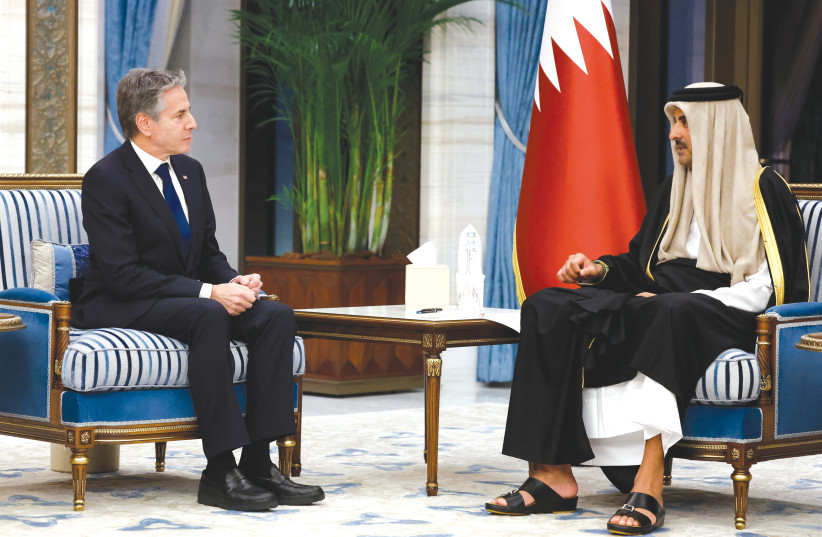Qatar has been - and continues to be - a "close partner" in the hostage negotiation process and has done everything they can do to try to get the hostages home, State Department spokesperson Matthew Miller said during a news briefing Tuesday afternoon.
On Tuesday, Secretary of State Antony Blinken spoke with both the Prime Minister and Foreign Minister of Qatar.
Miller reiterated Hamas - not Qatar, Egypt, or Israel - is the impediment to the hostage agreement.
"It is Hamas that refused to agree to the deal that is on the table, despite the fact that it would achieve much of the things that they have publicly claimed and repeated statements that they are trying to achieve," Miller said.
Gaza aid
While Miller said there's been a significant increase in the number of aid trucks going into Gaza, he said it's still not enough.

Miller said the number of trucks going in isn't the only focus, but also where the trucks are going and ensuring they get to Northern Gaza.
Miller added that it ensures the Ashdod port is open and that bakeries in Northern Gaza can reopen.
According to Miller, 65 trucks went into Northern Gaza on Sunday, and more were planned for Monday.
Miller said the US has been in communication with the Israeli government and partners about the importance of getting medical supplies into Gaza, and items that are legitimate medical items aren't excluded from deliveries into Gaza.
Miller said conversations are ongoing regarding the distribution of humanitarian aid that will be delivered through the Pentagon's temporary constructed pier.
West Bank violence
The US has made "absolutely clear" that the government of Israel has a responsibility to police settler violence and has the responsibility to hold extremist settlers who commit violence accountable, Miller said.
The State Department has and will continue to make the case of why it's in Israel's interest to take this matter incredibly seriously, Miller said.
Miller said failing to properly hold settlers accountable for their violence risks and escalation isn't just harmful to the Palestinian people that live in the West Bank, but it's harmful to Israel's ultimate security and that it risks broader regional escalation.
